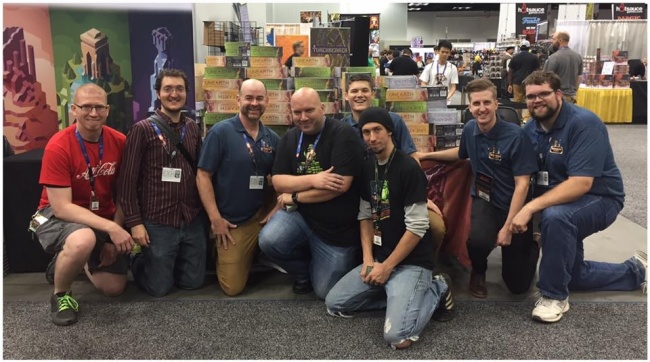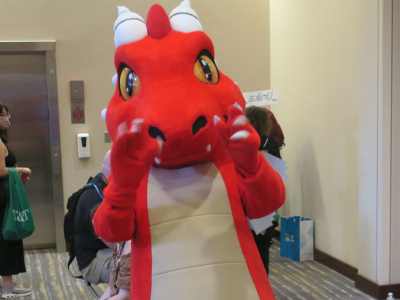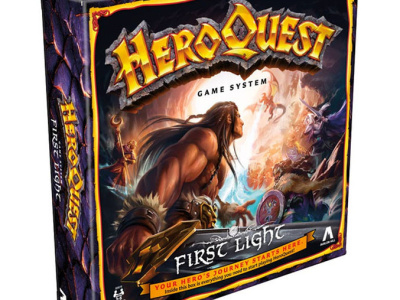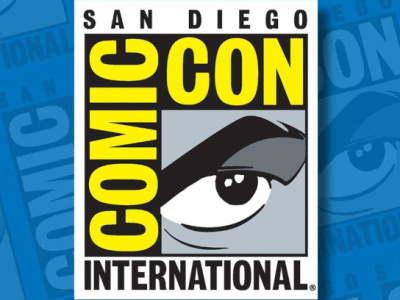Making the Game is a monthly guest column by Chris O’Neal of Brotherwise Games. Making the Game follows a year in the life of an indie tabletop publisher as they attempt to bring their third game to market. This month, O’Neal looks at the publisher’s perspective at conventions.
Gen Con 50 is in the bag, and it was a terrific one for Brotherwise Games. We sold out of our new release, Unearth (see “Exclusive Preview: 'Unearth'”), and started negotiations to localize the game in multiple languages. This month, I’m going to give the publisher’s perspective of conventions, and I’ll do so by answering some of the most commonly asked questions we hear from gamers and aspiring game designers/publishers.
My new game company is looking to break into the business. Should we try to get a booth at [insert name of Convention]?
This really depends on the cost of the Con and the current status of your company. Ultimately, it comes down to the math. Does attending that Convention provide a net benefit to your company?
For instance, let’s look at our trip to Gen Con this year, which cost us about $35,000. There are the booth rental costs (a 20'x20' this year); freight shipping of our products from Los Angeles to Indianapolis; freight handling and furniture rentals by the logistics handling company in Indy, booth staff (we pay all our sales and demo staff, who tend to be local); marketing costs, and travel, hotel, and food while we’re there. Our expenditures at Origins and other, smaller Cons are less, but still substantial. To put those costs in perspective, we’d have to sell over 2000 copies of our flagship game, Boss Monster, at full MSRP, to turn a profit at the Con. And this doesn’t begin to address the opportunity costs of the people hours that go into the Con. If I’m working the booth at Gen Con, it means I’m not answering emails, taking care of our customers, or developing new games.
But the benefits are substantial, both directly and indirectly. At this year’s Gen Con we sold out of the 1,000 copies of Unearth we brought, not to mention the many boxes of Boss Monster product we moved. Thousands more people saw our games, even if they didn’t buy them, and the buzz that will generate in the "game-o-sphere" is priceless. Cons provide a place to craft the story of your products. Professional media, bloggers, YouTubers, and everyday players left Gen Con having heard about Unearth. They’ll return home to continue telling that story in a way that – we hope – generates actual sales down the line. While it’s easy to measure the direct profits generated at Gen Con, it’s tougher to quantify the indirect benefits. By our estimation, however, they will be substantial, and for a small but established company like ours, attending the bigger Cons is a marketing must, even if we didn’t expect to turn a profit.
A smaller, newer company should certainly consider buying booth space at Cons, particularly the smaller, regional ones. But before laying down serious capital on the bigger Cons, they need to feel confident that their game will be noticed. The product glut that I talked about last month is real, and never more apparent than at Gen Con, where the vast ocean of games on display makes the most seasoned publisher nervous.
I’m an aspiring game designer. How do I get my game in front of a publisher at a Con?
This varies by publisher, but Brotherwise does not look at unsolicited games during conventions. We have an online submission process we use, and should we find a designer we’d like to meet in person, we’ll set up a meeting at a Con. Other companies are more than happy to look at a game during certain times. There’s really no harm in asking. You won’t annoy me by asking me to look at your game, no matter how busy I am.
Having said that, the savvy new designer will get themselves signed up for the designer/publisher speed dating events that are at most of the major Cons and even some of the minor ones. Basically, you get five minutes with each publisher to pitch them your game. It’s nerve-wracking, but there’s no better way to pique interest in your design. Get your Google on and find the next event. Every year a lucky publisher finds the next big hit at one of these.
How do you spend your time at a convention?
Ironically, as much fun as Cons are to work at, you don’t actually get to play that many games. That’s partly because if you’re doing your job as a publisher, most of your "free" time at Cons is wrapped up in meetings. You meet with your distributors to talk business. You meet with game store owners to talk about how your game is being played and purchased. You meet with overseas companies to talk about localizations of your games. You meet with your printer to talk about upcoming orders. You meet with reporters and bloggers. You meet with designers to look at their new games. Cons are also a great place to do other business that is better done face-to-face. At this Gen Con we met with a select group of fantasy authors to talk about licensing their IP for The Game, the as-of-yet unnamed third title Brotherwise is planning to launch later this year or in early 2018. The Game is coming together, and next month I’ll begin to talk about what’s going well in its development, and what isn’t.
The opinions expressed in this column are solely those of the writer, and do not necessarily reflect the views of the editorial staff of ICv2.com.
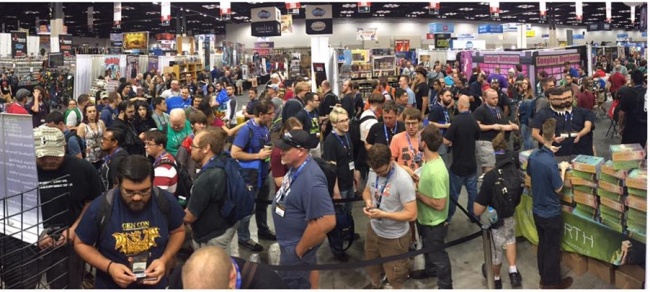
Column by Chris O'Neal
Posted by Chris O'Neal on September 6, 2017 @ 5:44 pm CT
MORE GAMES
Thursday July 31, 2025; 'D&D,' 'Riftbound,' and More!
August 8, 2025
The story of Gen Con 2024, as told through ICv2's staff photos, began on the morning of Thursday July 31, 2025 on the convention hall floor.
New Expansion Set for the Classic Fantasy Board Game
August 8, 2025
Hasbro will release HeroQuest: First Light, a new expansion for the classic fantasy board game, into retail.
MORE COLUMNS
Column by Jeffrey Dohm-Sanchez
August 7, 2025
ICv2 Managing Editor Jeffrey Dohm-Sanchez lays out the hotness of Gen Con 2025.
Column by Rob Salkowitz
August 5, 2025
In this week's column by Rob Salkowitz, he looks at the industry's biggest show, held in the midst of some existential issues.



